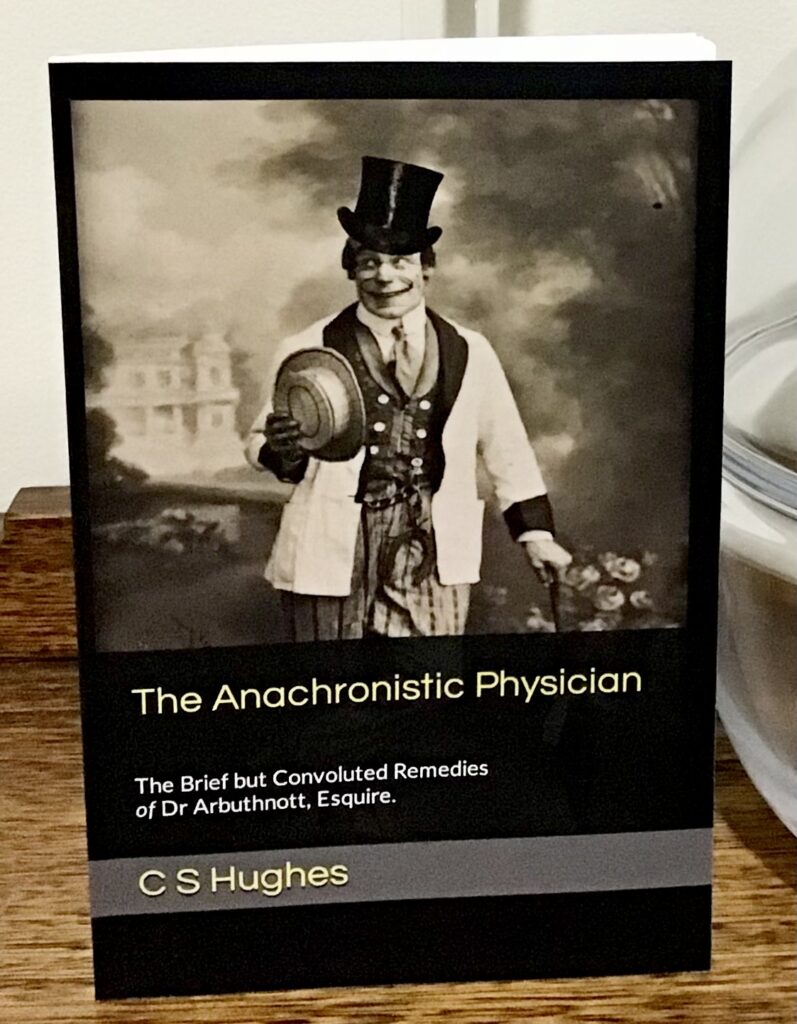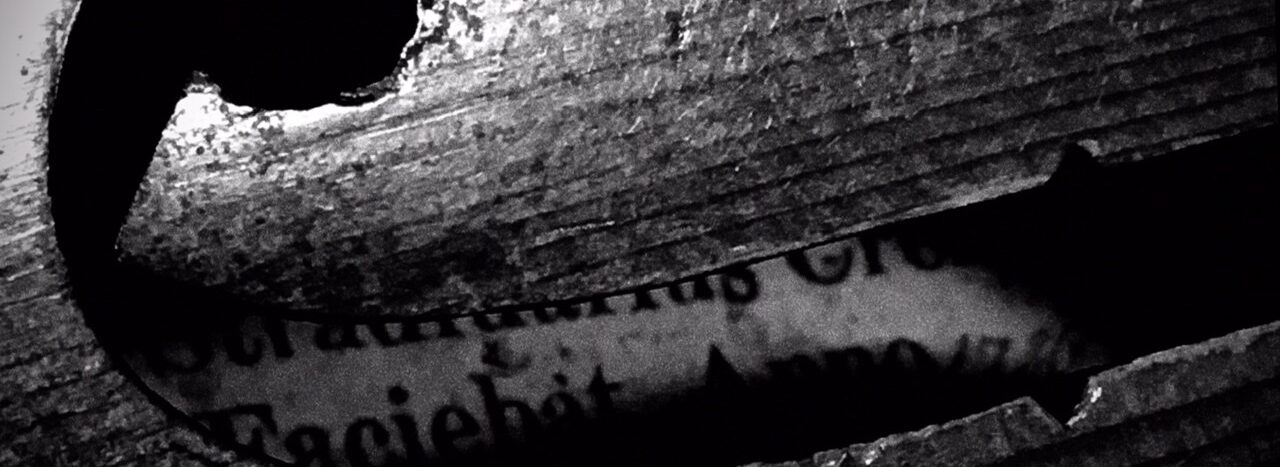Or, The Brief But Convoluted Remedies Of Dr Arbuthnott, Esquire.
Arbuthnot is more curio than curiosity. A collection of notes, missals, commiserations and travelogues addressed to the good doctor’s patients, they were purportedly re-assembled by poet C S Hughes from the time and mouse eaten fragments found in an old, brass-cornered traveller’s trunk.
The Anachronistic Physician, (sometimes also called Arbuthnot’s Cure-All Or Patented Panacea) is a slim but dense volume, with a texture like fine old leather. The notes from the doctor are – as it says in the subtitle – convoluted. Sometimes sense must be extracted from them, like a bad tooth, with a sharp jerk on a tightly knotted string. Arbuthnot dangles meaning like so many dancing puppets. That they sometimes tangle is no surprise. That in tangling they are eminently more profound than one might give them credit for, definitely is.
We can conclude a few things about the Doctor himself – from details garnered from the poems – he appears to have lived from around 1880 to the early 20th century, an exceptionally long life. He claims to have been a member of The Royal Society – exactly which one is not so clear. He seems to have travelled as far as the Australian outback, and to the Pyramids under Napoleon, and to have been primarily based around London, or possibly Greenwich.
He seems at once frugal and generous, retiring but pompous, possessed of a mercurial wit, and yet also, contrarily, plain spoken. From the photographic evidence – which may indeed be deceptive, we can see that the Doctor has a penchant for hats, and for the habit of lead paint favoured by society in the late 18th century. He signs himself, in various locations, as both Arbuthnot and Arbuthnott. An act of whimsy, or does this duality, both a denial and a conundrum, signify a deeper psychological divide?
We had hoped to closely examine the paper and ink used by Arbuthnot, to garner deeper revelations – unfortunately – as Mr Hughes reports – the surviving fragments were themselves lost.
One thing of which we can be certain, despite their intractable convolutions, the poems themselves have a certain indelible charm; part Carroll, part Swift, part Leer, but with an insistent cadence that is wholly original.
We can only concur with what other poets have said of Arbuthnott. James Walton calls him an “Everyman” –
“In Arbuthnot exists a fantastical collection of observations set with language encompassing a lyric and rhyme designed to transport, where the script is the cure. At times dark ‘the heart a tree of sparrows…/less a beast and more a wasteland’, yet underpinned by a quiet joy of redemption where ‘Alexander’s phalanx once/Doggedly ate half the world’. Ultimately the researched protagonist prescribes his own fate and that of his patients to a place of enlightenment, there is a ‘maladjustment of the soul, but how it shone.’ There are hard truths in the common plight of the living, the collapse of hierarchy ‘The plague has taken Kings’, the collapse of empire to individuals and democracy, and the pragmatics of survival. The physician is out of place and time, as is the cruel condition of those who survive the witness of life about them. Arbuthnot is a wondrous creation spinning in wordplay which leaps beyond its period setting simply because the rich texture of the realized character is an everyman, a journey without end.”
Or as Rob Schackne says, “It’s a cracker. More sublime than ridiculous. Dr Arbuthnot(t) is an unforgettable figure who is both funny and compassionate. His science is spot-on. He writes to his patients. His poetic prescriptions address the soul. He is the literate doctor many of us wish we had. Do we dare ask where to find him? He is here with us now.”
One publisher – well known for publishing just about anything – refused it outright – finding Arbuthnott, “extremely challenging” – personally, amongst the glut of the unexceptional that marks the contemporary scene, we find there can be few higher compliments. However, we will leave the last word to another poet, Robin Dale, who declared, most aptly,
“This is mad, wild, exceedingly improper stuff. It’s bound to cure you of dropsy, the ague, and spots before the ankles before you’re halfway through. Arbuthnot manages to transfer the reader into a bizarre and crazy world where the proper is very proper and the improper rules the precarious nodules of the brain. Read it if you can! Thoroughly entertaining work which had me in needlework!”

The Anachronistic Physician is available now from Amazon and all the usual suspects.
